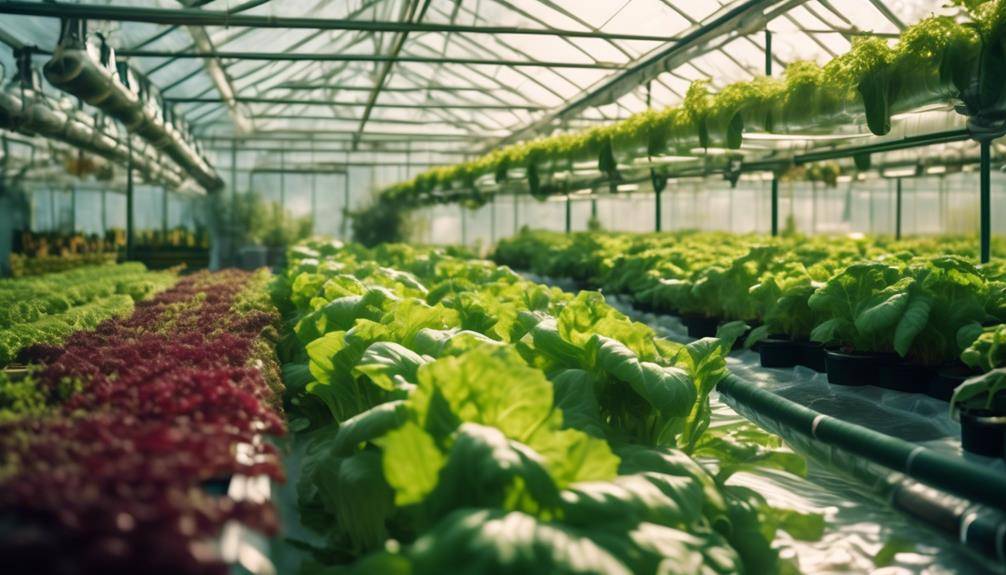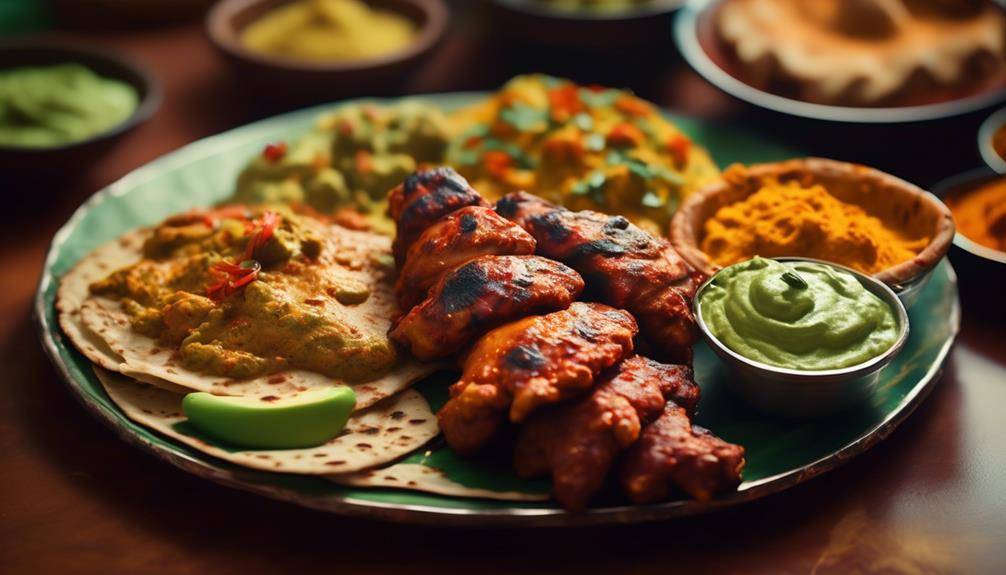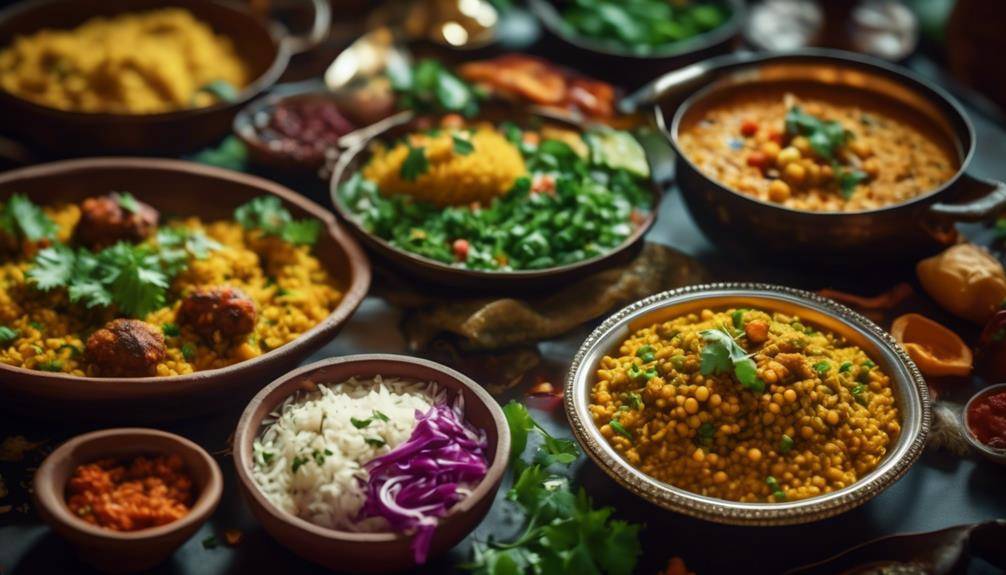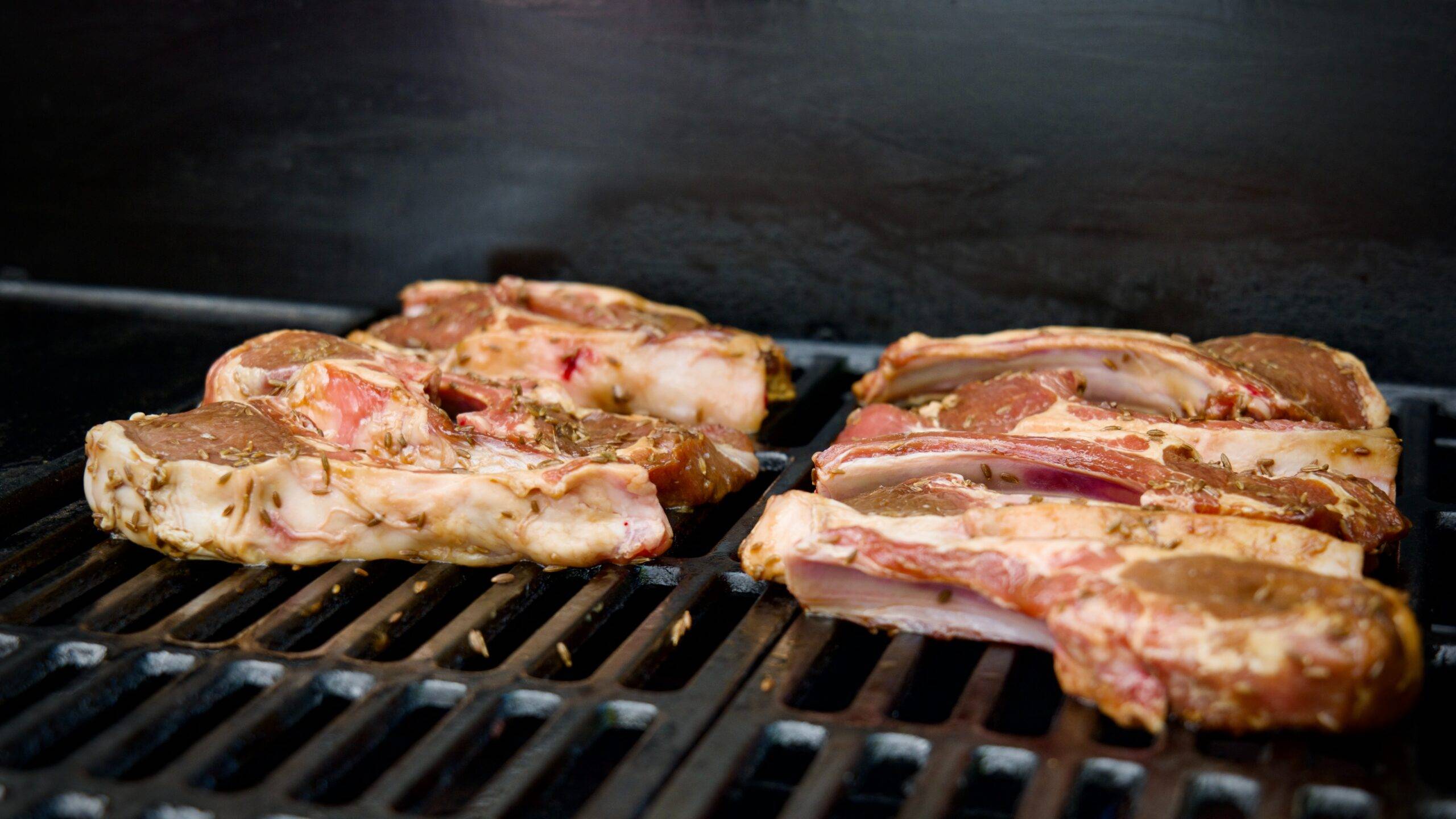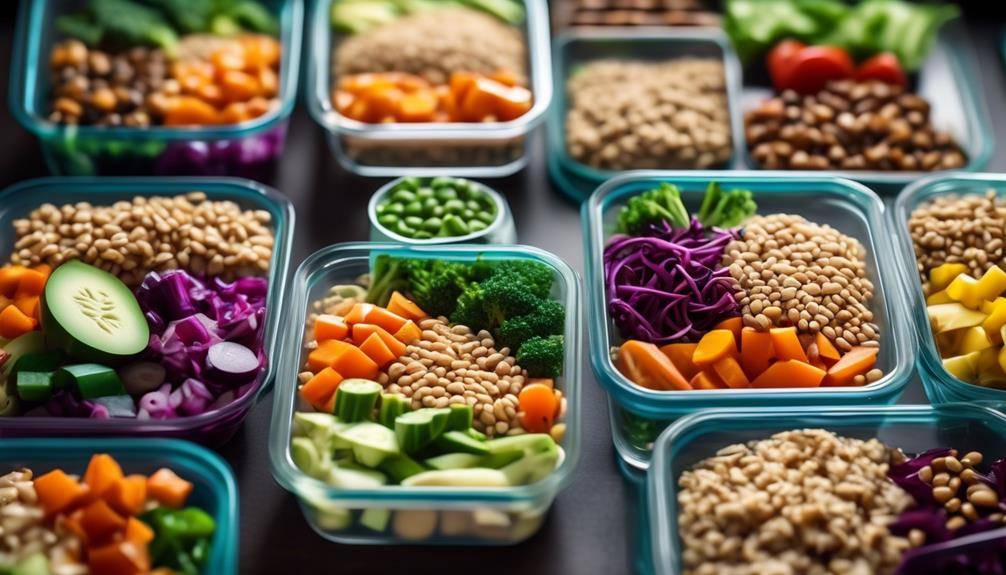How To: Balanced Vegan Diet for Weight Loss
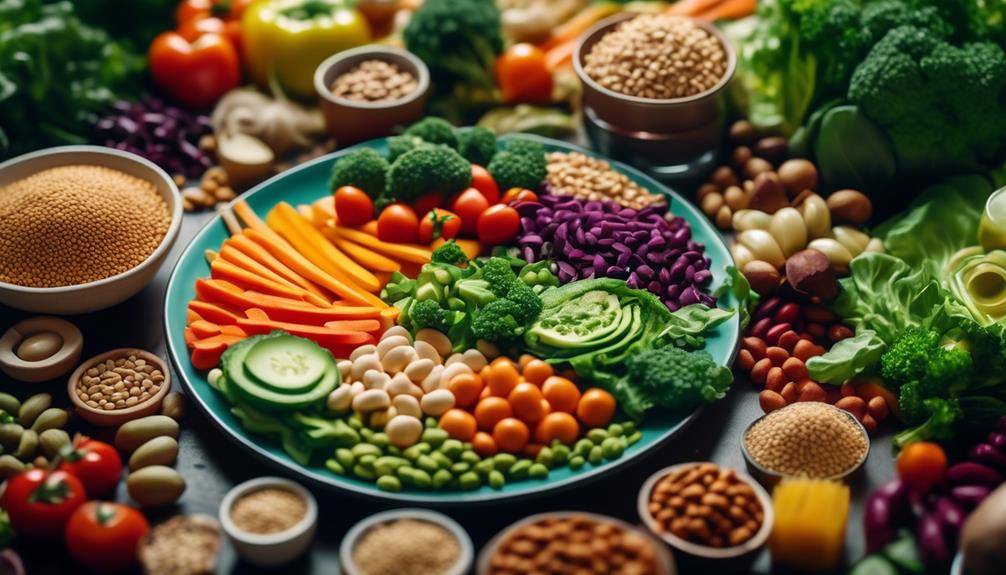
Looking to shed a few pounds? Perhaps you’re seeking a more balanced approach to your diet? Well, look no further than the realm of plant-based eating. A Balanced Vegan Diet for Weight Loss can offer you a multitude of benefits, including potential weight loss. But how exactly can you achieve this? What are the key components of a well-rounded vegan diet? And how can you incorporate the right nutrients to support your weight loss goals? In this discussion, we will explore the answers to these questions and provide you with valuable meal planning tips to kickstart your successful vegan weight loss journey.
Benefits of a Vegan Diet for Weight Loss
If you’re looking to shed some pounds, adopting a vegan diet can offer numerous benefits that can help you achieve your weight loss goals. A vegan diet is a plant-based eating plan that excludes all animal products, including meat, dairy, eggs, and even honey. By focusing on whole grains, fruits, vegetables, legumes, nuts, and seeds, a vegan diet provides essential nutrients while being low in saturated fat and high in fiber. These factors contribute to its effectiveness in promoting weight loss.
One of the key benefits of a vegan diet for weight loss is its low calorie density. Plant-based foods are generally lower in calories compared to animal-based foods. This means you can consume larger portions of plant-based foods while still staying within your daily calorie limit. For example, a plate of vegetables, legumes, and whole grains can be more filling and satisfying than a small piece of meat. This can help prevent overeating and promote overall calorie reduction.
Another important benefit of a vegan diet for weight loss is its high fiber content. Fiber is a type of carbohydrate that is not digested by the body. It adds bulk to your meals, making you feel fuller for longer. Additionally, fiber slows down the digestion process, which can help regulate blood sugar levels and prevent sudden spikes and crashes in energy. By keeping you satisfied and energized, fiber plays a crucial role in weight management.
In addition to its low calorie density and high fiber content, a vegan diet also tends to be rich in vitamins, minerals, and antioxidants. These nutrients are essential for overall health and can support your weight loss journey by boosting your metabolism, reducing inflammation, and improving digestion.
Key Components of a Balanced Vegan Diet
To maintain a balanced vegan diet, it is important to incorporate key components that provide essential nutrients while supporting your weight loss goals. A vegan diet can offer numerous benefits for cardiovascular health, such as reducing the risk of heart disease and high blood pressure. By eliminating animal products and focusing on whole plant-based foods, you can lower your intake of saturated fats and cholesterol, which are known to contribute to cardiovascular issues.
When transitioning to a vegan diet, it’s essential to ensure you’re obtaining all the necessary nutrients. One key component is protein, which can be found in legumes, tofu, tempeh, and plant-based protein powders. Incorporating a variety of these protein sources will help meet your daily protein requirements. Another crucial component is healthy fats, which are essential for overall health. Include foods like avocados, nuts, seeds, and olive oil to provide your body with essential fatty acids.
In addition to protein and healthy fats, your vegan diet should be rich in fruits, vegetables, whole grains, and fiber. These foods provide essential vitamins, minerals, and antioxidants that support overall health and weight loss. They also help you feel full and satisfied, reducing the likelihood of overeating.
To ensure you’re meeting your nutritional needs, consider consulting a registered dietitian who specializes in plant-based diets. They can guide you on meal planning, supplementation, and help you navigate any potential nutrient deficiencies.
Incorporating key components into your balanced vegan diet will not only support your weight loss goals but also contribute to better cardiovascular health. By being mindful of your nutrient intake and focusing on whole plant-based foods, you can enjoy the benefits of a vegan diet while achieving your desired weight loss.
Plant-Based Protein Sources for Weight Loss
Looking to incorporate more plant-based protein sources into your weight loss journey? You’re in luck! There are plenty of protein-rich plant foods that can help you shed those extra pounds. Not only do these plant proteins provide essential amino acids, but they also offer additional benefits like fiber, antioxidants, and vitamins.
Protein-Rich Plant Foods
Including protein-rich plant foods in your vegan diet can be an effective strategy for weight loss. High protein vegan meals can help you feel full and satisfied, while also supporting muscle growth and repair. Here are three sub-lists of protein-rich plant foods to incorporate into your diet:
- Legumes: Lentils, chickpeas, and black beans are excellent sources of protein. They are also rich in fiber, which can aid in weight loss by promoting feelings of fullness.
- Nuts and Seeds: Almonds, chia seeds, and hemp seeds are packed with protein and healthy fats. They can be enjoyed as a snack or added to smoothies, salads, or homemade granola.
- Whole Grains: Quinoa, brown rice, and oats not only provide protein but also offer other essential nutrients like fiber and vitamins. They make a great base for meals and can be paired with vegetables and legumes for a well-rounded dish.
Incorporating these protein-rich plant foods into your vegan diet can support your weight loss journey and contribute to your overall health and well-being. Many vegan weight loss success stories highlight the benefits of including these foods in their diet.
Benefits of Plant Proteins
Did you know that plant proteins offer numerous benefits for weight loss and overall health? Incorporating plant-based protein sources into your diet can be a smart move when trying to shed those extra pounds. Plant proteins are typically lower in calories and saturated fats compared to animal proteins, making them a healthier alternative. They are also rich in fiber, which helps you feel full and satisfied, reducing the urge to overeat.
Additionally, plant proteins contain essential nutrients such as vitamins, minerals, and antioxidants that support your overall health. To ensure you meet your protein needs, you can incorporate vegan protein supplements into your diet. When cooking plant proteins, opt for methods such as baking, steaming, or grilling instead of frying to minimize added fats and calories. By including plant proteins in your weight loss journey, you can achieve your goals while enjoying a nutritious and satisfying diet.
Incorporating Whole Grains and Legumes for Sustained Energy
To ensure sustained energy on a vegan diet, incorporating whole grains and legumes is essential. Whole grains and legumes are rich in complex carbohydrates and fiber, which provide a steady release of energy throughout the day. Here are some practical tips for incorporating whole grains and legumes into your meals:
- Whole grain recipes: Whole grains such as quinoa, brown rice, and whole wheat pasta are nutritious and filling. Try incorporating them into your meals with these delicious recipes:
- Quinoa salad with roasted vegetables: Toss cooked quinoa with roasted vegetables like bell peppers, zucchini, and cherry tomatoes. Drizzle with a lemon-tahini dressing for added flavor.
- Brown rice stir-fry: Sauté your favorite vegetables like broccoli, carrots, and snap peas in a wok. Add cooked brown rice and a splash of soy sauce for a quick and satisfying meal.
- Legume-based meals: Legumes like lentils, chickpeas, and black beans are excellent sources of protein, fiber, and essential nutrients. They can be used in a variety of dishes, such as:
- Lentil curry: Cook red lentils with onions, garlic, and spices like turmeric, cumin, and coriander. Serve over brown rice or with whole wheat naan for a hearty and flavorful meal.
- Chickpea salad: Mix cooked chickpeas with diced cucumbers, tomatoes, red onions, and a simple vinaigrette dressing. Top with fresh herbs like parsley or cilantro for added freshness.
Incorporating whole grains and legumes into your diet not only provides sustained energy but also promotes overall health and weight loss. These plant-based foods are nutrient-dense and help you feel satisfied for longer periods, reducing the chances of overeating. So, go ahead and explore the world of whole grain recipes and legume-based meals to enjoy a balanced and energizing vegan diet.
Essential Vitamins and Minerals in a Vegan Weight Loss Diet
Incorporating essential vitamins and minerals into your vegan weight loss diet is crucial for maintaining optimal health and achieving your weight loss goals. While a vegan diet offers many benefits for weight loss, it’s important to ensure that you are getting all the necessary nutrients to support your body’s needs.
One key vitamin that vegans need to pay attention to is vitamin B12. This essential vitamin is primarily found in animal-based foods, and a deficiency can lead to fatigue, weakness, and even neurological problems. To ensure you’re getting enough, consider taking a B12 supplement or consuming foods that are fortified with this vitamin, such as plant-based milks or breakfast cereals.
Another important mineral to focus on is iron. Although plant-based sources of iron may not be as readily absorbed by the body as those from animal products, there are still plenty of options to choose from. Incorporate iron-rich foods like legumes, leafy greens, and fortified cereals into your meals. Pairing these foods with vitamin C-rich sources, like citrus fruits or bell peppers, can also enhance iron absorption.
Additionally, omega-3 fatty acids are essential for overall health and can be found in walnuts, chia seeds, and flaxseeds. These healthy fats can help reduce inflammation, support brain health, and aid in weight loss.
To optimize your nutrient intake, it’s also important to vary your food choices and incorporate a wide range of fruits, vegetables, whole grains, and plant-based proteins. By focusing on nutrient-dense foods and ensuring you’re meeting your body’s nutritional needs, you can enjoy the benefits of a vegan weight loss diet while maintaining optimal health.
Meal Planning Tips for a Successful Vegan Weight Loss Journey
For a successful vegan weight loss journey, effective meal planning is key. Planning and preparing your meals in advance can help you stay on track with your weight loss goals and make healthier choices. Here are some meal planning tips to help you on your vegan weight loss journey:
- Meal Prep: Set aside time each week to plan and prepare your meals. This can include chopping vegetables, cooking grains, and prepping snacks. Having pre-made meals and snacks on hand can help prevent impulsive and unhealthy food choices when hunger strikes.
- Portion Control: Pay attention to portion sizes to ensure you are not overeating. Use measuring cups or a food scale to accurately measure your food. Consider using smaller plates and bowls to create the illusion of a larger portion.
- Include a Variety of Foods: Make sure your meals are balanced and include a variety of nutrient-rich foods. Include plenty of fruits, vegetables, whole grains, legumes, and plant-based proteins in your diet. This will not only provide you with essential nutrients but also help keep you satisfied and prevent cravings.
Balanced Vegan Diet for Weight Loss; Frequently Asked Questions
Can a Vegan Diet Alone Lead to Weight Loss, or Do I Need to Incorporate Other Lifestyle Changes?
A vegan diet alone can lead to weight loss, but incorporating other lifestyle changes can enhance your results. Exercise plays a crucial role in weight loss, while veganism can boost metabolism and provide a balanced, nutrient-rich diet.
Are There Any Specific Fruits and Vegetables That Are Particularly Beneficial for Weight Loss on a Vegan Diet?
To maximize weight loss on a vegan diet, focus on specific fruits and vegetables like berries, leafy greens, and cruciferous veggies. Incorporating high-protein plant sources like tofu, lentils, and quinoa can also support your weight loss goals.
How Can I Ensure I Am Getting Enough Calcium and Iron on a Vegan Weight Loss Diet?
To ensure a balanced vegan diet, make sure to include vegan sources of calcium and iron. Good sources of calcium include fortified plant-based milk and leafy greens, while iron-rich foods include beans, lentils, and tofu.
Can I Still Enjoy Vegan Desserts and Snacks While Trying to Lose Weight?
Yes, you can still enjoy vegan desserts and snacks while trying to lose weight. Opt for healthier options like fruit-based desserts and homemade snacks made with nutrient-dense ingredients. Moderation is key.
Are There Any Potential Pitfalls or Challenges to Be Aware of When Following a Vegan Weight Loss Diet?
When following a vegan weight loss diet, there may be potential challenges. It’s important to be aware of meeting your nutritional requirements, such as getting enough protein, vitamins, and minerals.
Conclusion
In conclusion, a balanced vegan diet can be an effective option for weight loss. By focusing on plant-based protein sources, incorporating whole grains and legumes for sustained energy, and ensuring adequate intake of essential vitamins and minerals, individuals can achieve their weight loss goals while maintaining a nutritious diet. With proper meal planning and a commitment to a vegan lifestyle, successful weight loss can be achieved in a practical and sustainable way.



